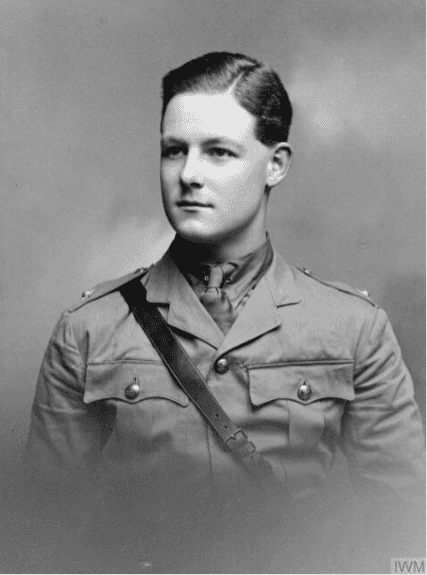Dick Piper was born on 22 November 1925 at Tunbridge Wells in Kent. He joined the Army in 1943 and after initial training as a private in the infantry went to the OCTU (Officer Cadet Training Unit) at Sandhurst.

He was commissioned into the Royal Tank Regiment in 1944 and transferred to the 8th Hussars, with the rank of Captain, in time to sail for Korea. The Regiment was part of the United Nations force which was being rapidly assembled, under American leadership, to prevent South Korea from being overrun by a vastly superior North Korean army.
It was a war between the two ideologies of democracy and communism. The success or failure of the UN depended on the future and freedom of the Far East; for both the Chinese and the Russians saw an opportunity to bring that strategically vital and potentially hugely wealthy area under their influence.
When the fighting began the North Korean army soon took possession of almost the whole peninsula, and the fledgling forces of the South found themselves desperately holding a line around Pusan, the only deep-water port still unoccupied.
The Americans already installed close by in Japan, the Headquarters of Gen MacArthur, responded with great speed and, quickly taking the initiative, forced the North Korean Army back almost to the border with communist China along the Yalu River.
That was the situation as the Regiment approached Korea aboard the Empire Fowey. Following some time behind them were the first Centurion tanks to be issued to the Army; untried either in action or even in training.
Dick Piper was our technical adjutant, a position of huge responsibility. The lives and pride of the officers and men of the 8th Hussars were not the only things at stake.
The British armaments industry was at that time of immense importance to the national economy, and the failure of the Centurion would have been catastrophic. Everyone, us, our American allies, above all our enemies, were anxious to see how the vehicle performed, and what technical wizardry it contained.
A better man for the job could not have been found. Dick was a technocrat to his fingertips, who understood far better than most of us what made the wheels go round.
He was passionately interested in the job of proving that the tank was a triumph of British engineering and that it should do for us everything that it was designed to do; and, importantly, that we should understand it and use it properly in order to achieve these aims.
Quite apart from this, he was an excellent soldier; fierce in the pursuit of excellence, he certainly did not suffer fools gladly, least of all those he thought were not trying to understand. He was no boffin with his head in the clouds of his superior knowledge, but practical, efficient and brave.
At the end of our time, in October 1951, with peace talks in the offing, it was decided by the high command to get our troops into the best position possible on the north side of the River Imjin on a line codenamed Jamestown. Jamestown was captured but a bloody battle had raged on and off throughout October.
A few days after Balaklava Day, 25 October, a considerable number of our tanks were in difficulties, forward of our infantry, with their tracks off or bogged down. Reports say that about 14 tanks were in need of recovery. It was no easy task, for enemy fire continued to rain down on the scene.
It was into this maelstrom that Piper led his recovery team and succeeded in bringing all of them to safety. For this, he was given an immediate award of the Military Cross, his citation describing him as ‘a man nothing could deter who showed inflexible determination’ (the real Dick Piper) and that it was ‘a shining example of courage’.
I can just see him as he was in those days… urgent, forceful, in charge, allowing nothing and no man to stand in his way, grinning hugely, he laboured with the task he completed so splendidly.
He returned to the Regiment for short spells in the 1950s for service with the British Army on the Rhine, during which decade he qualified at the Royal Military College of Science and in 1959 at the Staff College.


